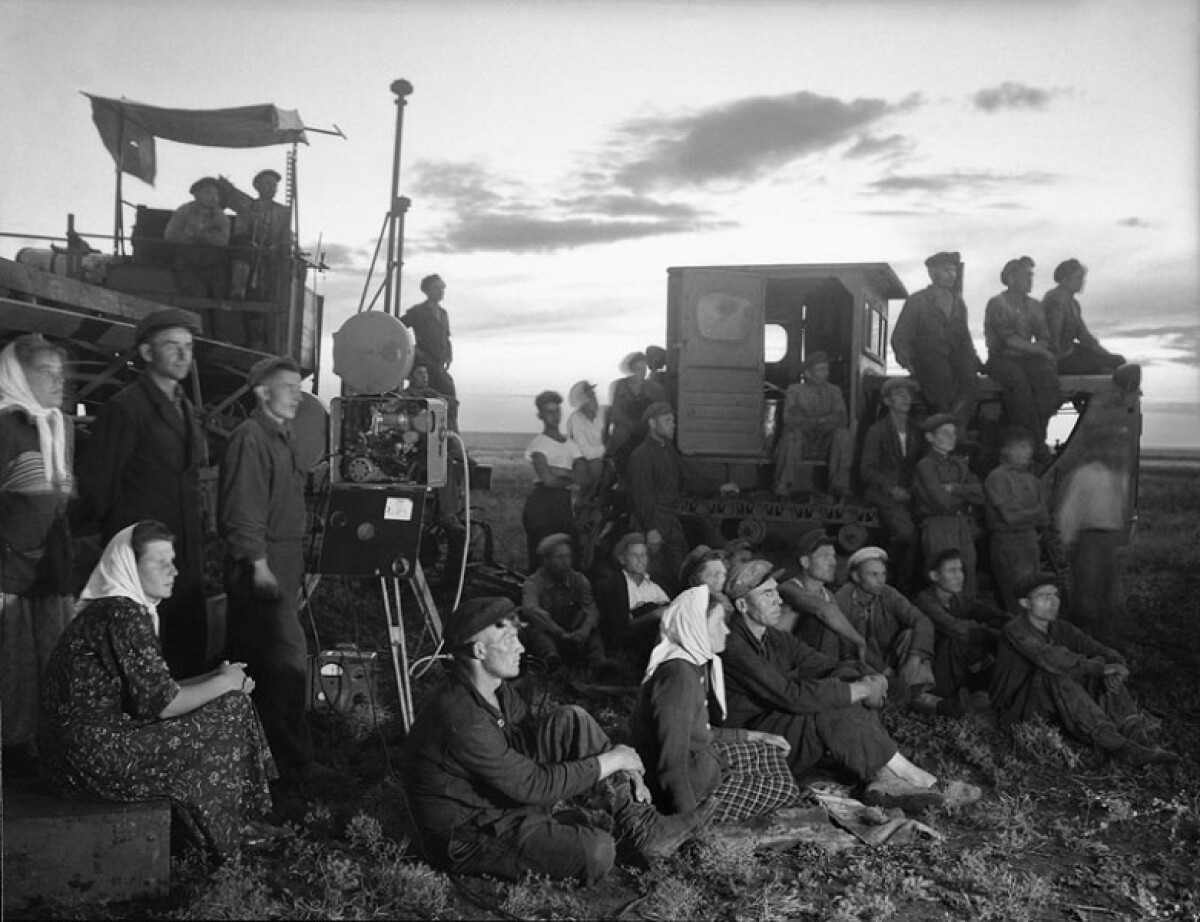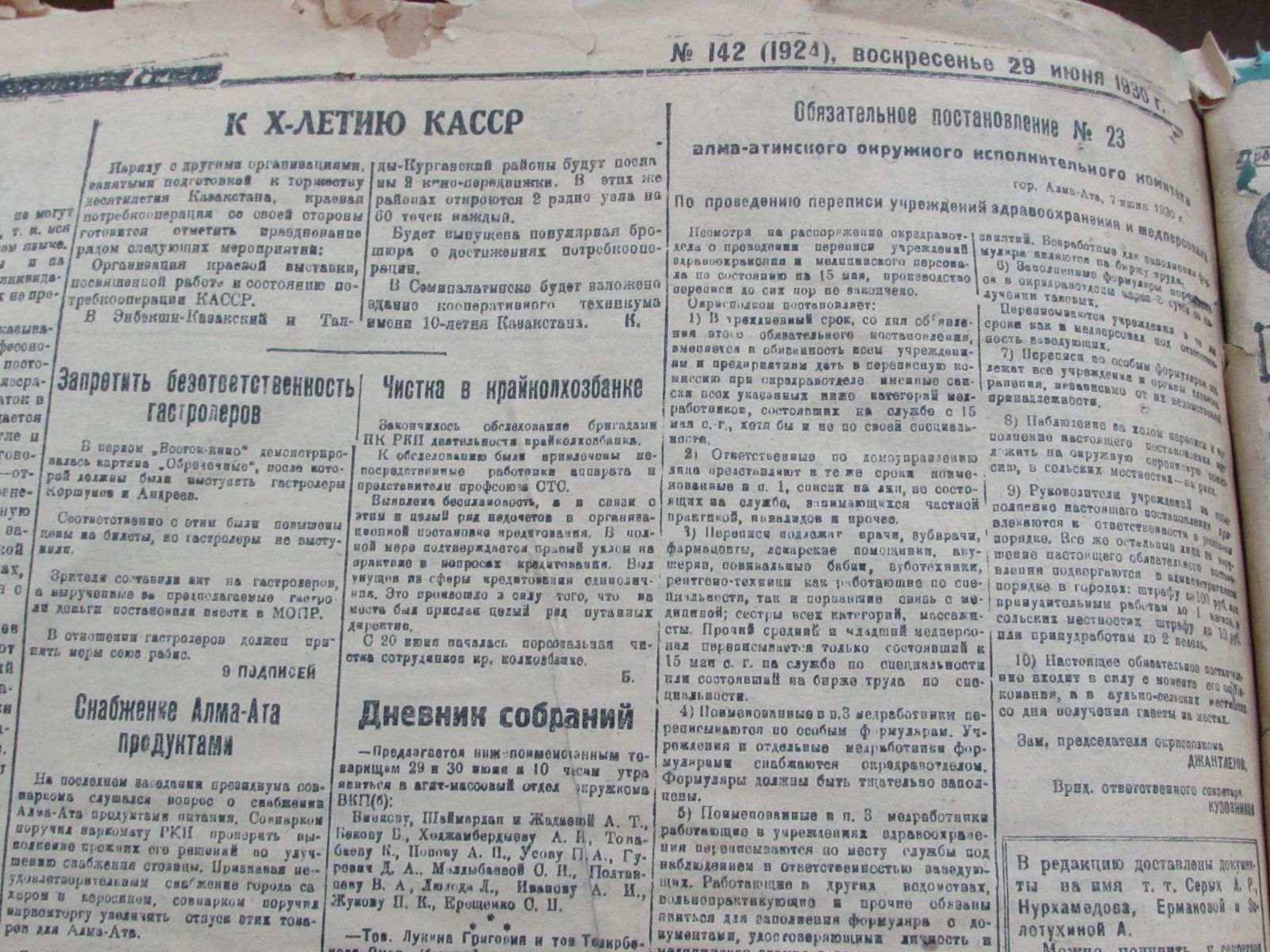
The publication in the newspaper “Soviet Steppe” clearly demonstrates the role of the regional consumer cooperation in Kazakhstan in the 1930s. In the list of anniversary events planned by the regional consumer cooperation, mobile cinema in the regions, the opening of radio nodes, the release of brochures, and the construction of a cooperative technical school are shown. What is consumer cooperation?
The consumer cooperation of Kazakhstan played an important role in the economic life of the Soviet Republic.
Consumer cooperation was a large trade and economic organization that developed trade in the countryside, through the purchase of agricultural products from the population. Consumer cooperation was one of the largest public-mass organizations in the republic in terms of the number of its members. A large inter-branch organization of Kazakhstan served half the population of the republic, was one of the main procuring organizations. Specificity of consumer cooperation was that it was social and economic at the same time, than differed from other organizations of the republic.
In the middle of the 20-ies, the consumers' cooperation of Kazakhstan launched procurement activities. Its share in the total volume of grain procurement increased to 37.8%. It participated in fairs. In 1929, there were 7 regional, 8 provincial, 23 local fairs. Their turnover amounted to 15 million rubles.
The consumer societies of Kazakhstan created a wide network of suburban farms to supply the population with vegetables and dairy products. 8 million rubles were spent for it.
Consumer cooperation actively participated in cultural and educational work. It had 328 cine cameras at its disposal. In 1927-1928 in the system of consumer cooperation there were 130 cooperative circles, 1 cooperative technical school, 2 cooperative-educational schools, as many new cooperative trade schools, and one year’s farm labor courses.
For the 10th anniversary of the KazASSR
Along with other organizations engaged in preparing for the celebration of the 10th anniversary of Kazakhstan, the regional consumer cooperation for its part is preparing to celebrate it with a number of the following events:
The organization of a regional exhibition devoted to the work and state of the consumer cooperation of the KazASSR.
2 mobile cinemas will be sent to Enbekshi-Kazakh and Taldykorgan regions.
In the same regions, two radio nodes will open at 60 points each.
A popular brochure on the achievements of consumer cooperation will be published.
In Semipalatinsk, the building of the cooperative technical school named after the 10th anniversary of Kazakhstan will be laid.
Conversion of the NEP led consumer cooperation into a dead end. The decision of the Soviet leadership to carry out "complete collectivization" by any means led to the terrible famine of 1932-1933. The crimes committed by the totalitarian system in carrying out Stalinist collectivization and dekulakization, can not withstand any justification.
Translated by Raushan MAKHMETZHANOVA

